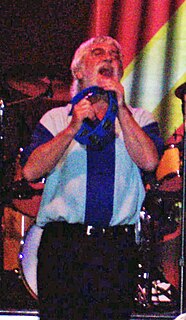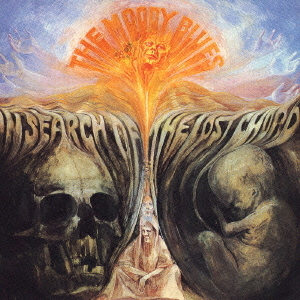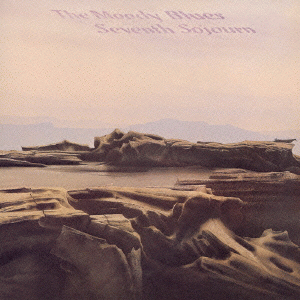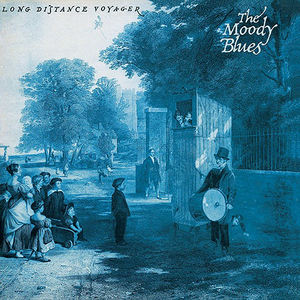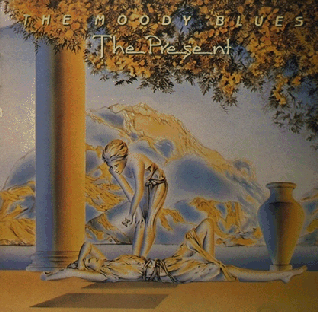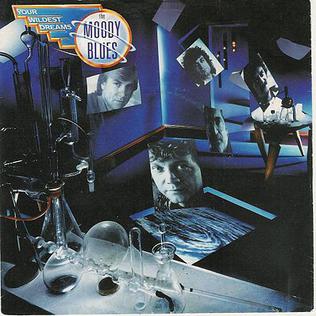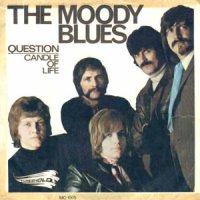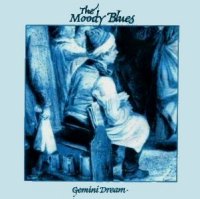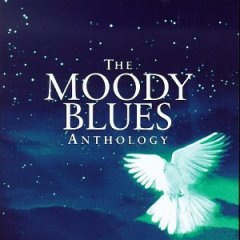| "Driftwood" | ||||
|---|---|---|---|---|
 | ||||
| Single by The Moody Blues | ||||
| from the album Octave | ||||
| B-side | "I'm Your Man" | |||
| Released | 6 October 1978 | |||
| Recorded | January - April 1978 | |||
| Genre | Rock | |||
| Length | 5:02 (Album version) 3:57 (Single version) | |||
| Label | Decca | |||
| Songwriter(s) | Justin Hayward | |||
| Producer(s) | Tony Clarke | |||
| The Moody Blues singles chronology | ||||
| ||||
"Driftwood" is a 1978 single by the English progressive rock band The Moody Blues. It was the second single released from the album Octave , after "Steppin' in a Slide Zone". Written by Justin Hayward, "Driftwood" is a slow love ballad, in a similar manner to "Nights in White Satin" and "Never Comes the Day."
Progressive rock is a broad genre of rock music that developed in the United Kingdom and United States throughout the mid to late 1960s. Initially termed "progressive pop", the style was an outgrowth of psychedelic bands who abandoned standard pop traditions in favour of instrumentation and compositional techniques more frequently associated with jazz, folk, or classical music. Additional elements contributed to its "progressive" label: lyrics were more poetic, technology was harnessed for new sounds, music approached the condition of "art", and the studio, rather than the stage, became the focus of musical activity, which often involved creating music for listening, not dancing.

The Moody Blues are an English rock band formed in Birmingham in 1964, initially consisting of keyboardist Mike Pinder, multi-instrumentalist Ray Thomas, guitarist Denny Laine, drummer Graeme Edge, and bassist Clint Warwick. The group came to prominence playing rhythm and blues music. They made some changes in musicians but settled on a line-up of Pinder, Thomas, Edge, guitarist Justin Hayward, and bassist John Lodge, who stayed together for most of the band's "classic era" into the early 1970s. Their second album Days of Future Passed was released in 1967, a fusion of rock and classical music which established the band as pioneers in the development of art rock and progressive rock. The album has been described as a "landmark" and "one of the first successful concept albums".
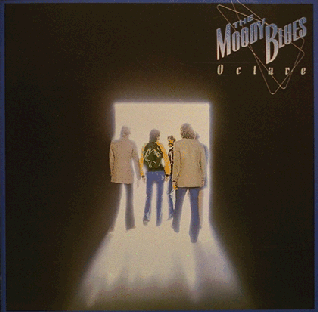
Octave is the ninth album by The Moody Blues, released in 1978, and their first release after a substantial hiatus following the success of the best-selling Seventh Sojourn in 1972. The album proved to be the last for the group with keyboardist Mike Pinder, who departed during the album's sessions, and declined an offer to tour with the group. Pinder had just started a new family in California, and found that he was not getting along with his bandmates as he had before. Pinder would be replaced by former Yes keyboardist Patrick Moraz in time for their 1979 tour, beginning a new era in the band's history. Octave would also be the final studio album from the band produced by Tony Clarke.
Contents
"Driftwood" was also the final single to feature keyboardist Mike Pinder, who left the band shortly before the completion of Octave for personal reasons. He would later be replaced by former Yes keyboardist Patrick Moraz.

Michael Thomas Pinder is an English rock musician, and is a founding member and original keyboard player of the British rock group the Moody Blues. He left the group following the recording of the band's ninth album Octave in 1978. He is especially noted for his technological contribution to music. In 2018, Pinder was inducted into the Rock and Roll Hall of Fame as a member of the Moody Blues.

Yes are an English progressive rock band formed in London in 1968 by singer Jon Anderson, bassist Chris Squire, guitarist Peter Banks, keyboardist Tony Kaye, and drummer Bill Bruford. The band has undergone numerous formations throughout its history; nineteen musicians have been full-time members. Since June 2015, it has consisted of guitarist Steve Howe, drummer Alan White, keyboardist Geoff Downes, singer Jon Davison, and bassist Billy Sherwood, with no remaining founding members. Yes have explored several musical styles over the years, and are most notably regarded as progressive rock pioneers.
Patrick Philippe Moraz is a Swiss musician, film composer and songwriter, best known for his tenures as keyboardist in the rock bands Yes and the Moody Blues.
Shortly after release, a promotional video was recorded for "Driftwood." The video features Patrick Moraz on the keyboards, although Mike Pinder is playing the keyboards in the actual recording. The song also includes an alto saxophone which is played by session musician R.A. Martin, although Ray Thomas is depicted playing the alto saxophone in the video.

The alto saxophone, also referred to as the alto sax, is a member of the saxophone family of woodwind instruments invented by Belgian instrument designer Adolphe Sax in the 1840s, and patented in 1846. It is pitched in E♭, and is smaller than the tenor, but larger than the soprano. The alto sax is the most common saxophone and is commonly used in concert bands, chamber music, solo repertoire, military bands, marching bands, and jazz. The fingerings of the different saxophones are all the same so a saxophone player can play any type of saxophone.

Raymond Thomas was an English musician, flautist, singer, founding member and composer in the English progressive rock band the Moody Blues. His flute solo on the band's 1967 hit single "Nights in White Satin" is regarded as one of progressive rock's "defining moments." In 2018, Thomas was posthumously inducted into the Rock and Roll Hall of Fame as a member of the Moody Blues.


